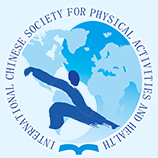Document Type
Article
Keywords
physical inactivity, BMI, socioeconomic status, institutional context, China
Publication Date
8-20-2024
Abstract
Drawing insights from the theory of fundamental causes of disease, this study examined the relationships between socioeconomic status (SES) and selected risk factors in transitional urban China. Specifically, under China’s distinct institutional and sociocultural environment, we examined how contextualized SES (i.e., party membership, hukou status, housing ownership, and subjective social status) and conventional SES indicators (i.e., education, income, and occupation) were associated with physical inactivity and body mass index (BMI). Utilizing the urban subsample of the 2017 Chinese General Social Survey (CGSS), we found that individuals with higher education, income, Communist Party membership, and urban hukou status had lower risks of physical inactivity. However, higher SES with Community party membership, urban hukou, and government jobs also increased the risks of being overweight, which may be explained by potential countervailing mechanisms. These findings revealed intricate relationships among SES and risk factors in China. Our study helped contextualize the theory of fundamental causes, furnished new empirical evidence, and served as a useful reference for future health inequality research in non-Western societies.
DOI
https://doi.org/10.18122/ijpah.3.2.5.boisestate
Recommended Citation
Xu, Jun; Gong, Fang; and Zhao, Wei
(2024)
"Socioeconomic Status, Physical Inactivity, and BMI in Transitional Urban China: Contextualizing the Theory of Fundamental Causes,"
International Journal of Physical Activity and Health: Vol. 3:
Iss.
2, Article 5.
DOI: https://doi.org/10.18122/ijpah.3.2.5.boisestate
Available at:
https://scholarworks.boisestate.edu/ijpah/vol3/iss2/5



